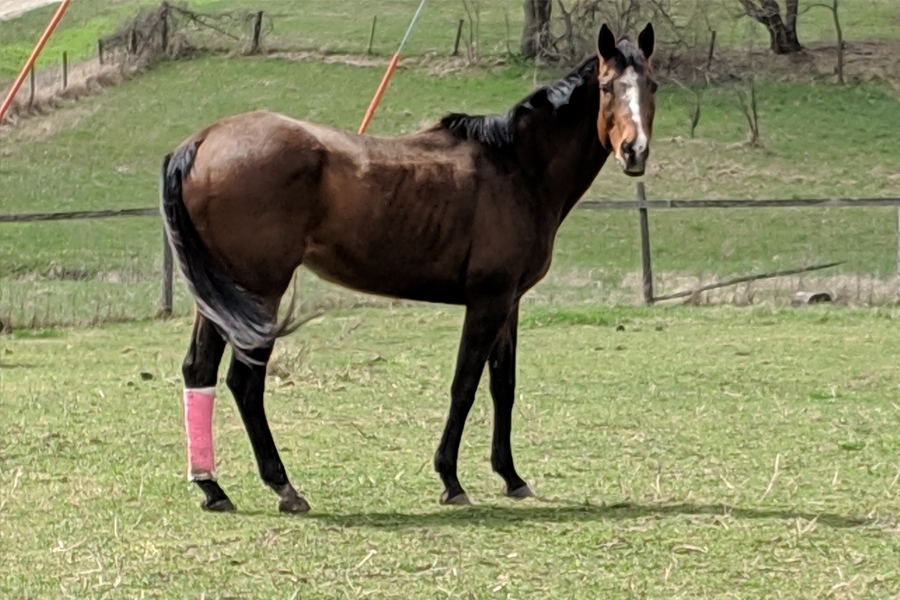
Horses have a highly refined sense of “fight or flight.” Unfortunately, when that instinct is triggered they will react no matter the cost, even if it means injuring themselves. Horses also spend a lot of time outdoors, running, and playing through the fields where they are exposed to all kinds of injury risks like sharp twigs, rocks, and even other animals. Even though they are incredibly graceful, any horse owner will tell you they can be very clumsy sometimes. That clumsiness can cause injury. In short, horses are very accident prone. So it is important that as a horse owner you understand what to do if they get injured. Here are my tips.
How to tell if your horse is wounded?
Horses are amazingly strong creatures. Unless there is a large obvious injury, it’s not always apparent to their owners right away. However, there are some signs and symptoms that will help you identify if your horse has been wounded:
- Lameness
- Unwillingness to move or bear loads
- Swelling or puffiness
- Heat and/or throbbing
- Blood, both liquid or dried, often most noticeable with an accumulation of flies
I always recommend checking your horse for both minor and major injuries when you let them out of their stable, when they have come back from being out in the pasture, and most importantly during their daily grooming. When grooming your horse be aware of any changes in temperament or behavior. Is the horse jitterish when you brush over a certain area, or do they refuse to perform a learned action such as raising the hoof? Sudden, unexplained changes should be a sign that there is something more for your or your vet to investigate.
Always stay prepared for horse wound care
It’s very important to keep a horse first aid kit at your stable at all times. I also recommend taking a basic kit with you when you go riding. A first aid kit will help you manage any injury. There are pre-packaged first aid kits that can be purchased online or at your local feed store. You can also put a kit together on your own. I recommend talking with your veterinarian for recommendations.
How to triage a serious wound
If you find that your horse has sustained a major wound, know that a horse in pain can react unpredictably. Be aware of your surroundings and avoid doing anything that can put yourself or anyone nearby in danger, or that may cause the animal to injure itself more. First, call your veterinarian, explain the situation and they will advise you on the best intimidate action to take.
While you wait for them to arrive, and only if it is safe to do so, there are some basic first aid steps you can take. If there is profuse bleeding, apply direct pressure to the area with a sanitized cloth or gauze. Then use an elastic bandage to dress the wound. This can help reduce some of the bleeding. Next, if possible try to move your horse to a clean and quiet place. Whether you can move them or not, try to stay with them to make sure they feel protected and safe while you wait for the vet to arrive.
Three steps to care for a minor wound
When your horse is wounded, it’s always a good idea to contact your veterinarian. Even with the best quality of home care, minor wounds can become major issues. However, there are some things you can do for minor injuries:
Stay calm
There is nothing scarier than seeing your horse in pain. Many of us immediately panic and go into a strong protective mode. However, we have to remember that horses feed off of our energies. When we are stressed, they will respond accordingly. However, if you stay calm, your horse is more likely to stay calm. But even when we stay calm, an injury can trigger stress in your horse, which can make it hard to inspect and care for their wounds. In these cases, creating a calming environment with the essential oils in Show-Thyme Calming Oil can really help. Blended with calming ingredients like lavender, clary sage, and ylang-ylang, a few drops as an inhalant can help calm your horse enough so you can begin caring for their wounds.
Clean the wound
The most important thing to do is to clean the wound. Gently rinse water over the area to remove all the dirt and debris. This can go a long way in helping to prevent an infection, but I recommend using Lavender Cleansing Spray as well to help sterilize the wound. This gentle cleanser contains witch-hazel and lavender, which has antiseptic properties that will not only clean the wound, but help reduce pain and irritation. We designed this product as a spray, rather than a traditional antiseptic wipe because it helps provide a gentler application and is easier to make sure that you are cleansing the entire area of the wound. You can spray it directly onto the area, or onto a clean cloth and wipe.
Keep your horse still
If a recovering hoses has too much movement it can pull at the tissues and keep the wound open. This will cause pain, prevent healing, and put them at risk of infection. After the wound has been treated, it is best to keep the horse in their stall, corral, or round pen if possible until they are fully healed so they aren’t exposed to bacteria, viruses, and fungus that can infect the wound. If they are a working horse, it’s a good idea to keep them off duty until the wound closes fully.
Continue to clean the area with Lavender Cleansing Spray several times a day for the first few days, until the wound shows signs of healing naturally – bleeding or other discharge has stopped and a clean scab has formed over the area. At this point you may switch to applying The Balm! to the area several times a day, as this will keep the skin moisturized and prevent dirt and infections from getting into the site.
Once you have treated the minor wound, it is very important to monitor its progress. If the wound doesn’t seem to be healing or shows any sign of worsening, you should call your veterinarian.
If you’d like to learn more about using our Lavender Cleansing Spay or The Balm!, ask in the comments below, give us a call at (515) 770-3517 or email us at info@equispa.com. We’ll happily answer any questions you have about how to use our products for horse wound care.

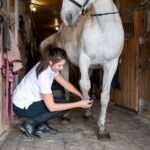

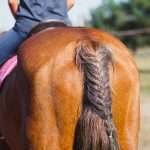

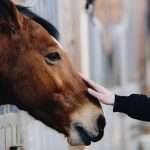
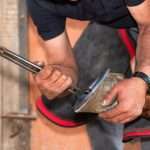

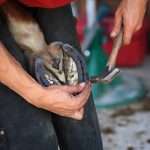


staying calm part I have problems with LOL
Important to know.
Sonya what to do with a wounded horse
i play it safe. ready for trouble
Again a very interesting read
I like horses.
I don’t think a wounded horse should be put down because they become “useless” to the owner. Unless the horse is in chronic pain, the horse should be allowed to live out the rest of its life.
Great advice. Thank you for sharing this!
Thank you
These are all good tips and should be followed. It is better for your horse to get assessed by a vet then to let an infection set in!
Never knew heat could be a sign of a wounded horse. Thanks!
Thanks for these useful tips..
Really good thorough guide, comes in handy with all those who has a horse
Staying calm is definitely key! I grew up on a dairy farm and we had to care for our cattle a lot!!
Veterinary medicine has come a long long way , you know what they did to wounded horses before
I have a tendency to panic. This is great information.
Good information! Thank you
Good information in case of an emergency.
Got the new knowledge for treating horse; that maybe also available on other animal
a clean and quiet place is a must.
super
Good recommendations
like horses
This is a great article now I know what to do whenever this happens and I´m close thanks!
Great tips
Keeping a horse still isn’t always easy.
Staying calm is important
all good advice on caring for a wounded horse
Interesting, something new to me
Wow very informative
CooL
I would always get the Vets opinion first, on any injury
This website is so helpful and educational.
Staying calm is key in my experience! Great writeup
Great tips
Great information ❤️❤️
I love horses
Nice information
Sad when any animal is in pain
Good starter article
Good starter article
It’s scary when horses hurt their legs, it can be life ending fir them.
Good info
Thank you for the helpful informatiom.
Thanks for sharing
“Lameness” I thought that meant a boring horse!! oh no!
I am so happy to know this. I recently got a horse for my birthday and this article helped me a lot when i was learning how to take care of it. I love my Paul and I am happy i can give him proper care now. Thank you.
great advice
that’s good to know thank you for the helpful information
Back in the day, when I was a kid, our pony would puff out his stomach so we couldn’t get a saddle on him. He had a huge puffy stomach from over-eating, not from an injury, thankfully. Thanks for posting!
Interesting article
good to know, might be useful later
CALL A VET.
I feel like keeping your horse still would be the hardest
I would take it to the vet just to be safe
When you own a horse, it’s good to have an on call doctor!
Thanks so much for the great read full of very interesting information.
Horses need to be helped
Very interesting
Cutest horse
Very helpful tips
Thank you for sharing this! It is so true to stay calm! If you freak out, they freak out, too! Take a deep breath and do what you can.
will come in handy in the future
Have fun keeping the horse still lol
Awesome information 👍👍
call a vet..awesome info
great info
Wonderful article! 🐴🐴🐎🐎🐴🐴🐎🐎🐴🐴🐎🐎
Again..a very interesting and great article. Who would have known, there is even an oil for a horse to calm them…. Show-Thyme Calming Oil ! wow. great idea and would surely help. I am learning more and more about taking care and tending a horse.
Seeing them hurt is heartbreaking
working verry hard for a horse
Damn…I hate it when horses get wounded. Anyways thanks for the tips.
Hope with pills or rehab get them back in gear!
the best thing to do is go over your horse thourly at least once a day to make sure you catch injuries asap.
great tips
That’s sad when beloved pets get hurt. Thanks for the tips!
good info!
Great tips
Good advice on caring for a wounded horse
thks. could b useful in future
thanks for the info
Great information, thanks for posting.
thanks for the info, its very interesting
Amazing!
Keep calm and always help you’re beloved animal.
Great info, thanks for the help!
Great information if needed could be very helpful
Leg wound care can be the difference of life and death for a horse
Wish I had known some of these tips when a horse I was looking after was suffering, luckily the vet helped.
Great information, hope never need to use it but fabulous
Great article. A lot of good information. Thank you.
Good reminders for treating a horse.
call a vet
I haven’t heard of lavender cleansing spray before. That’s good information to know that the wound should be kept clean and keep checking on it.
thanks
great information
Very great advice!
Great tips for any horse owner! Loving your blog. So much great information.